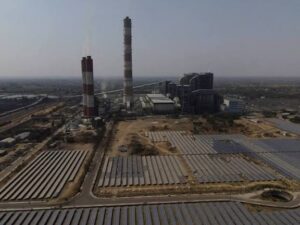Power generation companies in Nigeria have renewed their demand for immediate government intervention in the worsening liquidity crisis rocking the electricity sector, warning that the debt owed to them has now surged to about ₦6 trillion.
The operators made the appeal during the 10th anniversary celebration of the Association of Power Generation Companies (APGC) in Abuja, where they cautioned that the growing financial shortfall threatens the stability of the entire power value chain.
Chairman of the APGC Board, Col. Sani Bello (Rtd.), said the huge outstanding payments were crippling GenCos’ ability to operate effectively, despite their continued efforts to sustain electricity supply across the country.
“Power producers have kept the grid running under very difficult conditions,” he noted, calling for stronger cooperation among the Ministry of Power, NERC, NBET, TCN, gas suppliers, and distribution companies. “No country can achieve industrial growth without steady electricity,” he added.
The Managing Director of Mainstream Energy, Lamu Audu, whose company runs the Kainji, Jebba, and Zungeru hydro power stations, revealed that the firm alone is owed over ₦600 billion. He warned that if the debt remains unpaid, the industry could face a total breakdown.
APGC’s Executive Director, Dr. Joy Ogaji, said the debt figure jumped from ₦4 trillion in 2024 to ₦6 trillion this year, despite repeated government pledges to clear the backlog. She emphasized that the sector’s recurring challenges — from gas shortages to poor grid infrastructure — required political will, not just policy promises.
While congratulating APGC on its decade of operations, the Managing Director of the Nigerian Independent System Operator (NISO), Abdu Mohammed, reminded stakeholders that only licensed entities — not associations — are recognized under the nation’s electricity market rules.
In response, the Federal Ministry of Power assured GenCos that plans were underway to clear the arrears. The ministry’s Permanent Secretary, Mahmuda Mamman, represented by Director of Planning, Research, and Statistics, Evangeline Babalola, praised the generation companies for their persistence in keeping power supply steady despite huge debts.
“Your continued commitment in these tough times is an act of national service,” Mamman said. “The government recognizes your sacrifice and remains committed to settling outstanding obligations.”
Industry experts warn that without immediate liquidity support and structural reforms, Nigeria’s power sector may struggle to sustain electricity generation — worsening outages across homes and industries.









